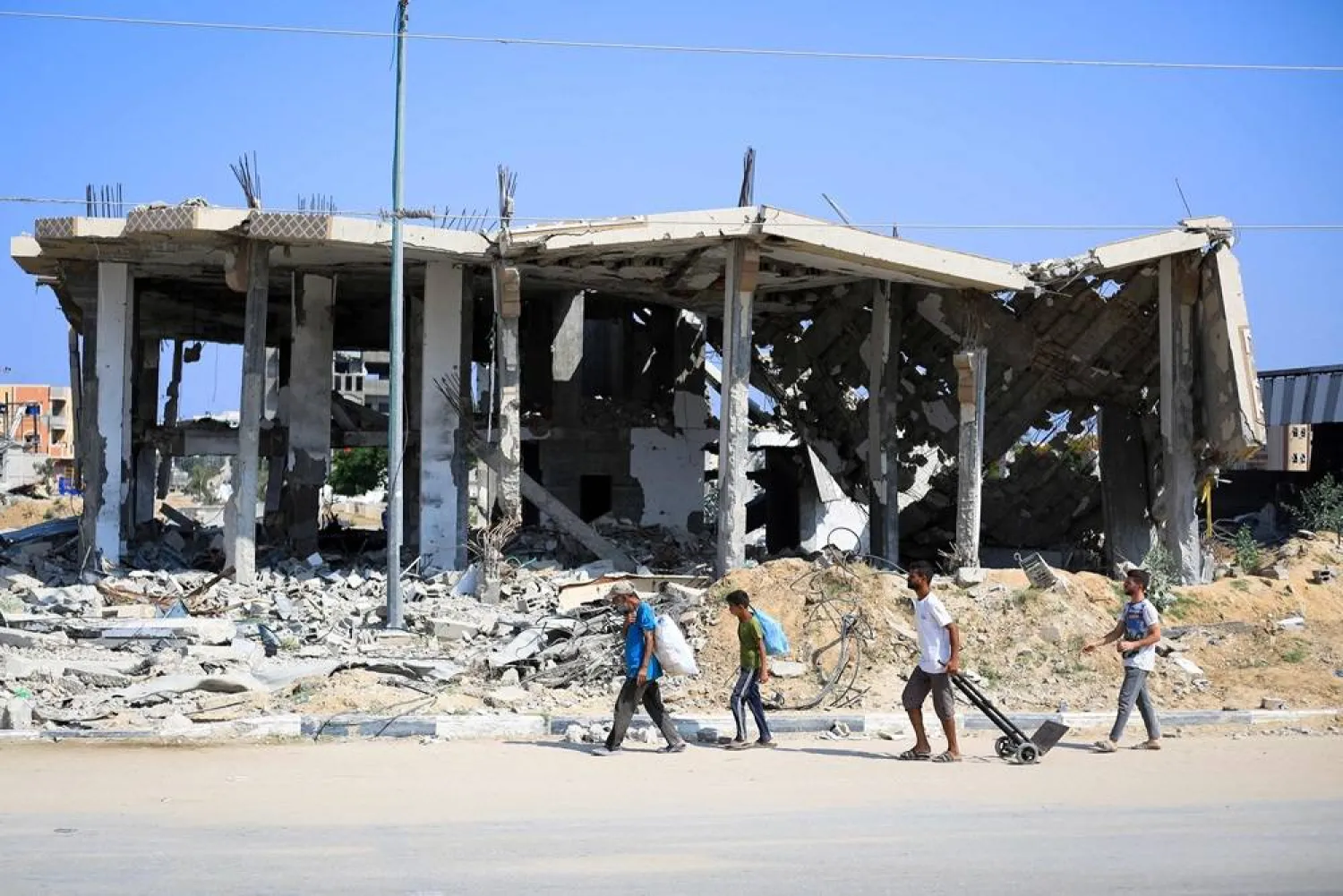Any Gaza ceasefire deal must allow Israel to resume fighting until its objectives are met, Prime Minister Benjamin Netanyahu said on Sunday, as talks over a US plan aimed at ending the nine-month-old war were expected to restart.
Five days after Hamas accepted a key part of the plan, two officials from the Palestinian group said the group was awaiting Israel's response to its latest proposal.
Netanyahu was scheduled to hold consultations late on Sunday on the next steps in negotiating the three-phase plan that was presented in May by US President Joe Biden and is being mediated by Qatar and Egypt.
It aims to end the war and free around 120 Israeli hostages being held in Gaza.
Hamas has dropped a key demand that Israel first commit to a permanent ceasefire before it would sign an agreement. Instead, it said it would allow negotiations to achieve that throughout the six-week first phase, a Hamas source told Reuters on Saturday on condition of anonymity.
But Netanyahu said he insisted the deal must not prevent Israel from resuming fighting until its war objectives are met. Those goals were defined at the start of the war as dismantling Hamas' military and governing capabilities, as well as returning the hostages.
"The plan that has been agreed to by Israel and which has been welcomed by President Biden will allow Israel to return hostages without infringing on the other objectives of the war," Netanyahu said.
The deal, he said, must also prohibit weapons smuggling to Hamas via the Gaza-Egypt border and should not allow for thousands of armed militants to return to northern Gaza.
US Central Intelligence Agency Director William Burns is to meet with the Qatari prime minister and the Israeli and Egyptian intelligence chiefs on Wednesday in Doha, said a source familiar with the issue who asked not to be further identified.
Burns is also expected to visit Cairo this week, along with an Israeli delegation, Egypt's Al Qahera News TV reported on Sunday, citing a high-ranking source.
There was no letup in fighting inside Gaza, where late on Sunday the Israeli military renewed orders for residents and displaced families in several districts in Gaza City to leave their homes. Some residents said they were surprised by the sounds of tank shells and gunfire from Israeli drones, as some managed to flee and others were trapped at home.
"This is the sixth time we have been displaced, we don’t know where we should go. To be honest, I don’t know. I have a three-storey building and now it was hit, I just got the news," a displaced woman who asked not to be identified told Reuters in Gaza City.
"My husband is an amputee and he is stuck in Shejaiya. We have heard no news about him," she said.
Palestinian health officials later said an Israeli air strike on a house in Jabalia on the northern edge of the Gaza Strip had killed at least 10 people, with many wounded and others still missing.
The new talks follow months of failed attempts to reach a ceasefire in stop-start negotiations that several times led nowhere after Washington said a deal was close.
A Palestinian official close to the talks said the proposal could lead to a framework agreement if embraced by Israel and would end the war.
"We have left our response with the mediators and are waiting to hear the occupation's response," one of the two Hamas officials told Reuters, asking not to be identified.
Another Palestinian official with knowledge of the ceasefire deliberations said Israel was in talks with the Qataris and that a response was expected within days.
PROTESTS IN ISRAEL
In Israel, protesters took to the streets across the country to press the government to agree to the Gaza ceasefire deal, which would bring back hostages still being held in Gaza.
They blocked rush-hour traffic at major intersections across the country, picketed politicians' houses and briefly set fire to tires on the main Tel Aviv-Jerusalem highway before police cleared the way.
In Gaza, Palestinian health officials said at least 15 people were killed in Israeli strikes.
Among them were Ehab Al-Ghussein, the Hamas-appointed deputy minister of labor whose wife and children were killed in May, and three other people killed in a strike at a church-run school in western Gaza City sheltering families, Hamas media and the Civil Emergency Service said.
The Israeli military said that after it took steps to minimize the risk of civilians being harmed there, it struck militants hiding in the school and a nearby weapon-making facility.
In central and northern areas of Rafah, on the southern Gaza border with Egypt, Israeli tanks deepened their raids. Health officials there said they had recovered three bodies of Palestinians killed by Israeli fire.
The Israeli military said its forces had killed 30 Palestinian gunmen in Rafah in the past day, and that one of its soldiers was killed in combat.
In Shejaia, an eastern suburb of Gaza City, the military said its forces had killed several gunmen and located weapons and explosives. It published a drone video showing gunmen, some appearing to be wounded or dead, in a house.
Reuters could not immediately verify the video.
The conflict was triggered on Oct. 7 when fighters led by Hamas, which controlled Gaza, attacked southern Israel, killing 1,200 people and taking around 250 hostages, according to Israeli figures.
More than 38,000 Palestinians have been killed in Israel's military onslaught, according to Gaza health officials, and the coastal enclave has largely been reduced to rubble.









